But what is Web 3.0? How does it differ from Web 2.0?… And what ever happened to Web 1.0?
This article should clarify a few things and help you understand how Ontology fits into the exciting world of Web 3.0.
From Web 1.0 to Web 2.0
Let’s lay the groundwork for Web 3.0 by first describing Web 1.0 and Web 2.0.
Web 1.0 was the first version of the worldwide web developed in the 1990s. Content was static, meaning users could only passively consume content rather than interact with it.
Web 2.0 changed this.
Our current web infrastructure is characterized as Web 2.0. It is the web we’re most familiar with.
Web 2.0 enabled the rise of social networks (e.g. Facebook, Twitter) and other sites (YouTube) that users could interact with.
These platforms brought with them many many benefits. They allowed people to share information and communicate in unprecedented ways. No longer were people dependent on legacy media to obtain and interact with news and entertainment. That said, platforms built on top of Web 2.0 infrastructure are not without their drawbacks.
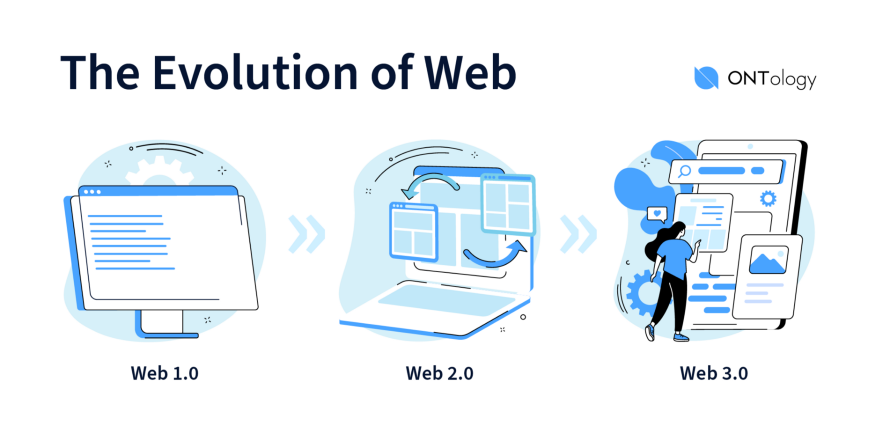
Limitations of Web 2.0
Every time we interact online, the platforms we use collect data about us.
This can be anything from email addresses, video preferences, to the topics we follow on Twitter.
These mass swaths of data are gobbled up by Big Tech and monetized — often without our knowledge.
Not only is this business model a threat to our privacy, it creates security risks.
Online platforms store their data on centralized servers that are vulnerable to security breaches. Millions of users have had their data exposed online.
So, how do we solve this problem?
This is where Web 3.0 comes in.
Web 3.0 & Ontology
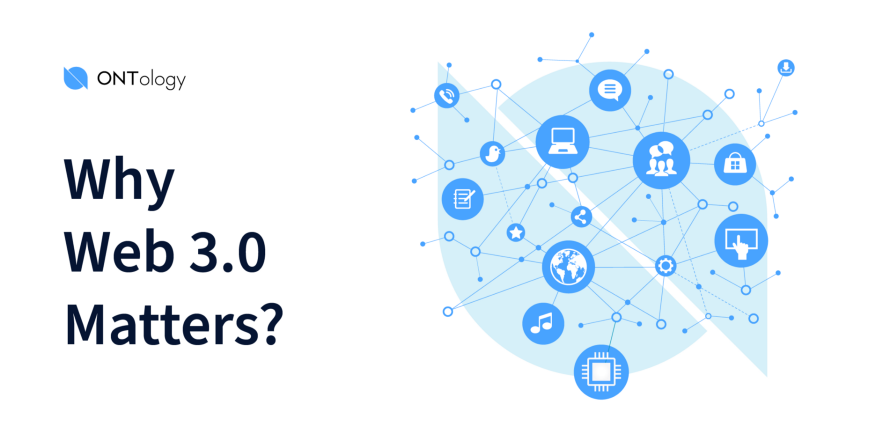
Ontology is a high performance, public blockchain providing Web 3.0 infrastructure through its decentralized identity (DID) and data solutions.
Importantly, Ontology is a highly interoperable blockchain, supporting cross-chain transactions and Layer 2 solutions (e.g. Polygon).
Ontology utilizes a universal multi-virtual machine solution, being the first chain to support NeoVM, NativeVM and Wasm in 2020.
This year, support for the Ethereum Virtual Machine (EVM) was added.
After our EVM testing is complete, Ontology will become the first public chain to support a total of 4 virtual machines.
Ontology has provided decentralized solutions in several sectors including mobility, inventory management, marketplace, corporate data attestation, copyright, and smart banking. Ontology is also collaborating with Chainlink, Polkadot, Waves, Neo and NEAR Protocol.
Web 3.0 & Decentralized Identity
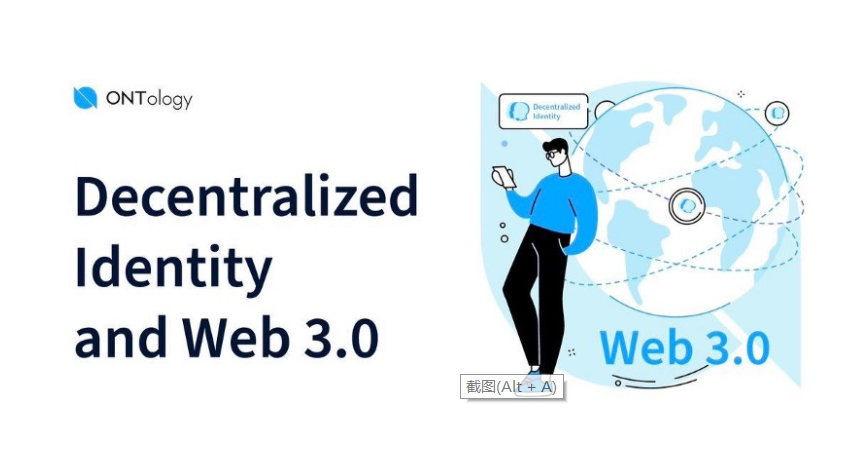
To recap, users currently have very little control over how their data is stored and utilized.
Ontology’s decentralized identity (DID) framework, ONT ID, is different.
With ONTID, you decide who can access your private data. ONT ID allows you to verify credentials, whilst protecting your data and privacy. You can verify anything from passports to national IDs and social media accounts.
You can create an ONT ID now by downloading ONTO Wallet, Ontology’s DID, cross-chain wallet.
ONTO Wallet: The Crypto Wallet Equipped for the Web 3.0 Era
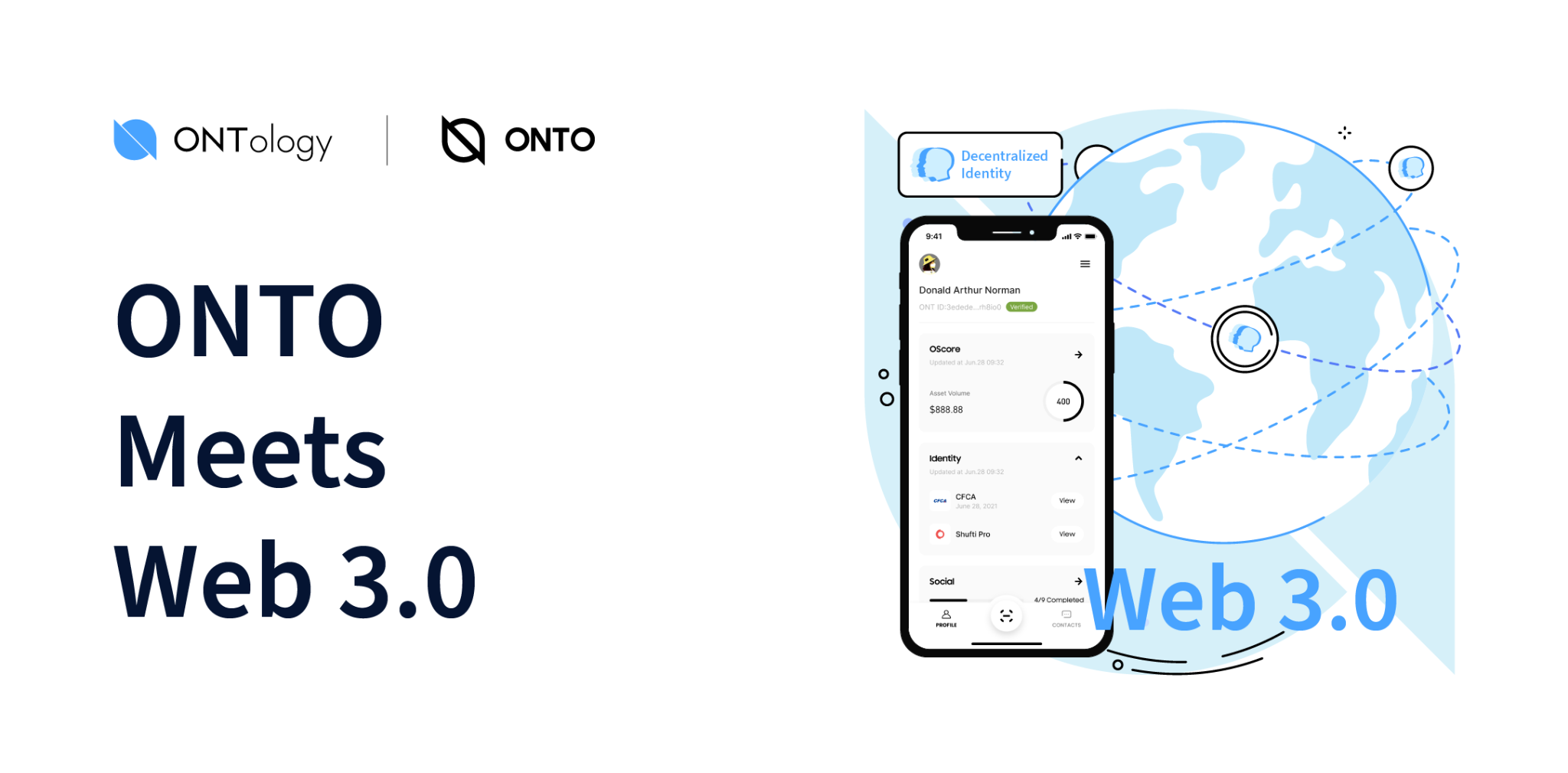
We’ve talked a lot about the coming Web 3.0 era.
But in certain respects, it’s already here.
ONTO Wallet, Ontology’s decentralized cross-chain wallet, is your gateway to Web 3.0.
With ONTO, you can manage your crypto, data and identities all in one place.
When you create an ONTO Wallet, you receive an ONT ID, Ontology’s decentralized identity framework.
Once you have your ONT ID, you can start verifying credentials (e.g. passports, social media accounts) to build your digital identity.
The beauty of ONT ID is that you, the user, decide who has access to your verified data. This is what makes ONTO and ONT ID part of Web 3.0. They are decentralized solutions and thus do not depend on centralized platforms.
Like Ontology, ONTO is highly interoperable, supporting 14 blockchains and hundreds of decentralized applications (dApps).
Many of these dApps specialize in decentralized finance, including Wing Finance, a credit-based, cross-chain DeFi platform.
Decentralized Finance & Web 3.0
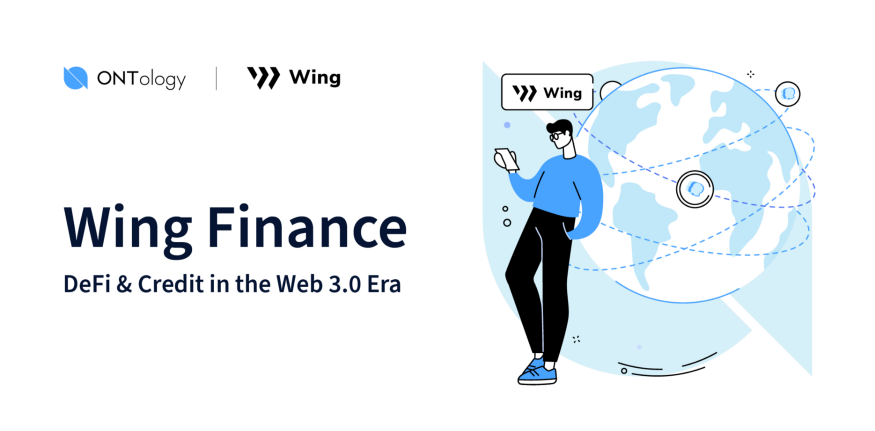
Decentralized finance (DeFi) has given people all over the world the opportunity to build wealth.
Wing Finance, Ontology’s credit-based, cross-chain DeFi platform, allows users to lend and borrow assets in order to earn rewards.
One problem with traditional DeFi projects is a lack of infrastructure necessary to build decentralized reputations.
In addition to decentralized identity, the transition to Web 3.0 requires a decentralized credit system.
This is where Ontology’s OScore comes in.
OScore: Bringing Credit to DeFi
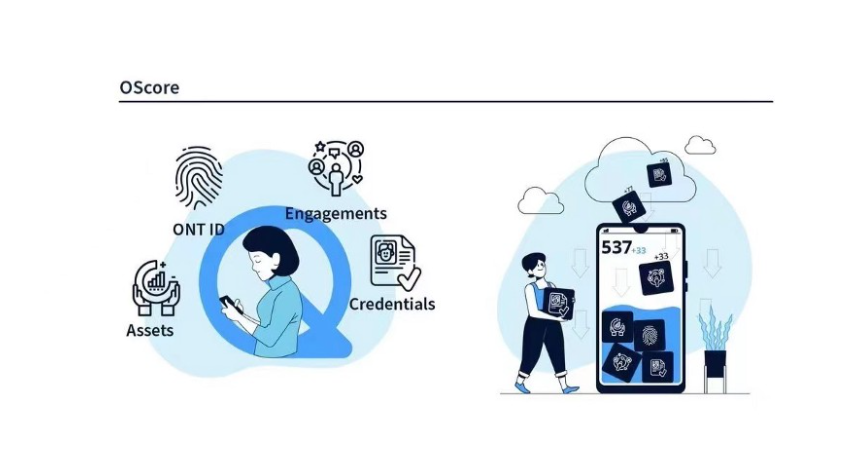
OScore is a decentralized credit score that helps you avoid over-collateralization when borrowing assets on Wing, earn WING rewards, and protect your privacy.
OScore combines on-chain activity (e.g. transaction histories, verified credentials) and creates a score to represent a user’s standing on the blockchain.
You can start developing your OScore now by creating an ONTO Wallet.
Data Management in the Web 3.0 Era
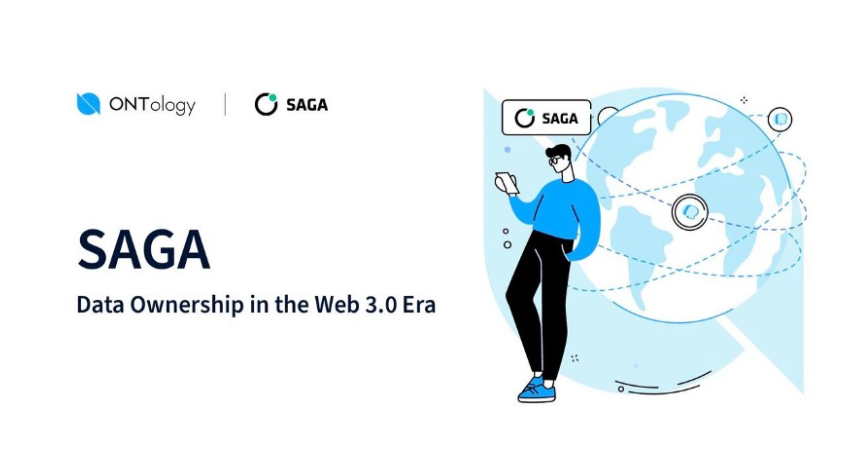
This article began by explaining the difference between Web 1.0, Web 2.0 and Web 3.0, before describing how Ontology and its decentralized products including ONT ID, OScore, ONTO Wallet and Wing Finance move us closer to the Web 3.0 era.
Finally, we’ll touch on SAGA Protocol.
As mentioned above, we often don’t know how our data is used once it makes its way online.
Centralized platforms are built around their ability to harvest vast quantities of data that is then monetized.
SAGA Protocol seeks to change this.
SAGA is a decentralized data marketplace powered by the Ontology blockchain.
Rather than paying a centralized platform to gain access to user data, SAGA offers enterprises a decentralized alternative where the data providers remain in control of the data they share.
SAGA allows users to both own their data and monetize it in a fair, safe, and secure way.
We see the decentralization of data as an essential step on the road towards Web 3.0 and are very excited to share more about SAGA as it matures.
Summary
To reiterate, this is a very exciting time in the tech world. The transition to Web 3.0 is likely to be as impactful, if not more so, than the move from Web 1.0 to Web 2.0.
Ontology is proud to be part of this rapidly changing landscape and is looking forward to sharing more technological developments in the future.
